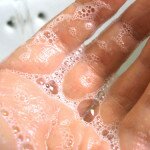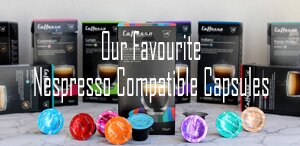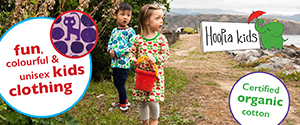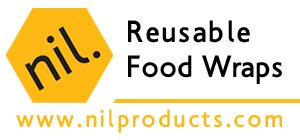 Are antibacterial handwashes best?
Are antibacterial handwashes best?
If you spend any time watching tv you’ll have noticed a certain type of ad. They’re the ones that have adorable children, a loving mum and action that wouldn’t be out of place in a horror film.
Fingers splayed across our eyes we watch in horror at the sight of those beautiful wee babes getting closer and closer to an unseen and innumerable terror – oozing, writhing, sickness causing germs.
At the last minute the heroine will appear with her weapon of choice to wash those germs out of existence. Whew.
It makes you want to rush out and buy some antibacterial goodness immediately. But should we be so quick to grab a trolley-full of anti-bac?
Are we in fact trying to swat a fly with a sledgehammer?
Why you should pause before using antibacterial soaps
Triclosan is one of the active ingredients you’ll find in many antibacterial products.[1] Originally developed for use in hospitals it has since been incorporated in a diluted form into a number of household goods. Wander into your bathroom and odds are you’ll find it there.
The question is, even if the antibacterial product works to kill slightly more bacteria on the hands, does this make a difference in the long run? Does this in fact result in fewer illnesses? Apparently not according to a 2011 research article.[2] This is in part due to the more common illnesses affecting children in particular tending to be viral NOT bacterial in origin.
“I suspect there are a lot of consumers who assume that by using an anti-bacterial soap product, they are protecting themselves from illness, protecting their families,” said Sandra Kweder, deputy director in the FDA’s drug center. “But we don’t have any evidence that that is really the case over simple soap and water.”[3]
Environmentalists and health advocate groups have long been concerned that substances like triclosan:
- Have the potential to create antibiotic-resistant bacteria
- Could interfere with hormone levels
- Might lead to other health problems such as a higher chance of allergies
- Can enter and negatively affect the environment even after waste water treatment. [4]
It looks now as if the more conservative sectors are willing to shift their approach to these substances.
Changing views
In December 2013 the US Food and Drug Administration (FDA) announced they would be revisiting the safety of a number of ingredients contained in cleaning and personal hygiene products. The proposed rule will put the onus on manufacturers to prove their goods are better than soap and water and safe to use.[5]
Recently companies like Johnson & Johnson, Procter & Gamble, Colgate-Palmolive, Avon have all committed to phasing triclosan out of their products but are generally quiet about what the replacement will be.[6]
Given the lag between concerns being raised about the ingredients in our products and an eventual response it may be wiser to take the bull by the horns and exercise our consumer choice.
There are companies who don’t ever include ingredients with the potential for negative health or environmental impacts. Ecostore[7] is a local example that springs to mind.
We can make conscious decisions about the products we use on our and our children’s skin.
So the next time you see one of those ads and start itching to get your hands on something in bright, white packaging with a lovely citrus perfume and plenty of chemicals that will utterly destroy every germ that dares enter your abode, pause.
Make sure what you’re using isn’t worse than the things you’re trying to get rid of.
References
[1] http://www.fda.gov/ForConsumers/ConsumerUpdates/ucm378393.htm
[3] http://bigstory.ap.org/article/fda-says-germ-killing-soap-could-pose-health-risks
[5] http://bigstory.ap.org/article/fda-says-germ-killing-soap-could-pose-health-risks
[6] http://www.theguardian.com/sustainable-business/avon-remove-triclosan-product-cosmetic-chemicals
[7] http://www.ecostore.co.nz/categories/body-care
Image credit: The Italian Voice via Flickr (CC BY 2.0)






